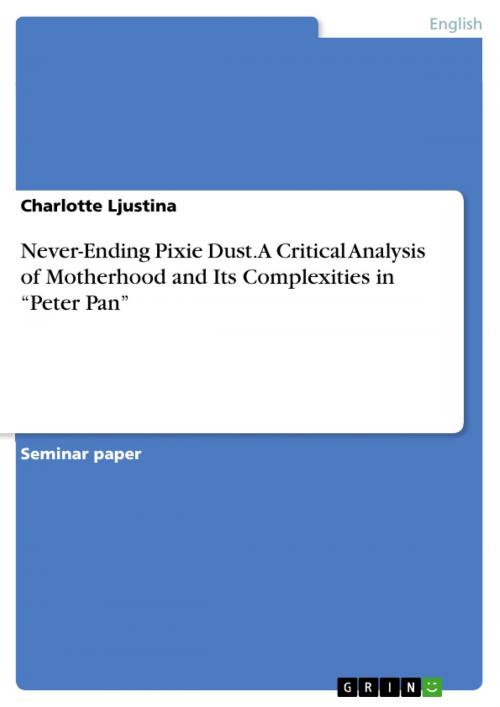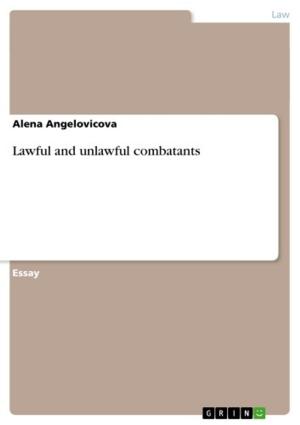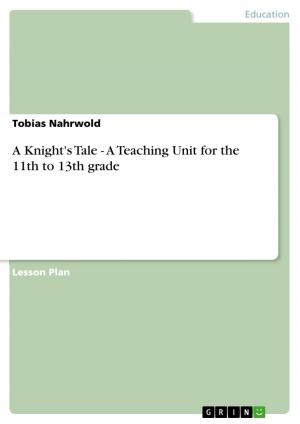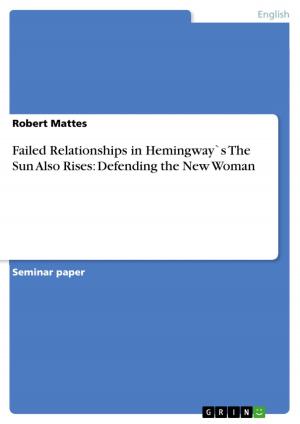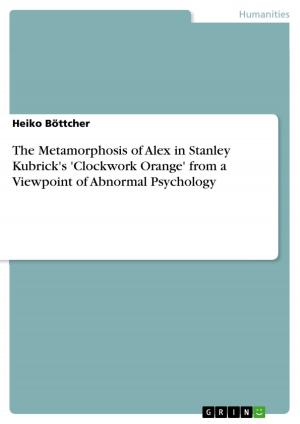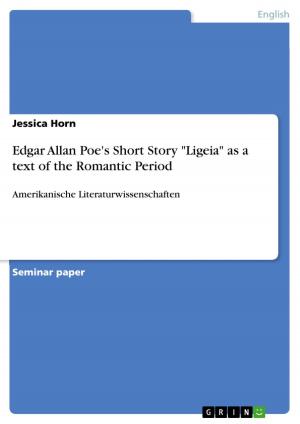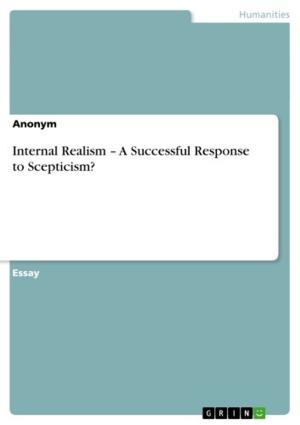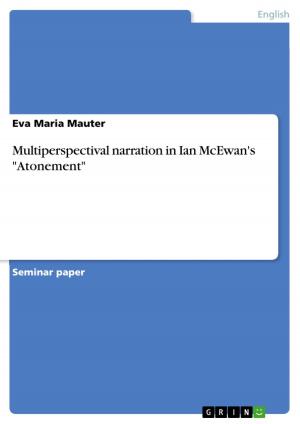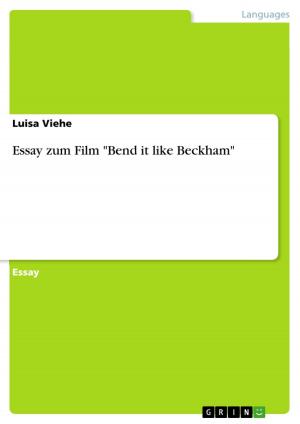Never-Ending Pixie Dust. A Critical Analysis of Motherhood and Its Complexities in 'Peter Pan'
Fiction & Literature, Literary Theory & Criticism, British| Author: | Charlotte Ljustina | ISBN: | 9783668057982 |
| Publisher: | GRIN Publishing | Publication: | October 1, 2015 |
| Imprint: | GRIN Publishing | Language: | English |
| Author: | Charlotte Ljustina |
| ISBN: | 9783668057982 |
| Publisher: | GRIN Publishing |
| Publication: | October 1, 2015 |
| Imprint: | GRIN Publishing |
| Language: | English |
Seminar paper from the year 2014 in the subject English Language and Literature Studies - Literature, grade: A, , course: Housewives in American Literature, language: English, abstract: The role of the 'mother-woman' in nineteenth century literature is constantly complexified. But who is the audience? For whom are we preserving the mother-myth and what are the parameters of doing so? This inquiry gave way to an investigation on an audience that, perhaps, was not intended to be targeted in such a way: children. Undeniably, though, it was. This paper explores the way in which Sir James Matthew Barrie's novel 'Peter Pan' aims at children to both perpetuate and dismiss the myth of the mother woman as a singular role, while expanding the girl-child's power beyond earthly realms. The paper analyses the gender roles as they are presented in 'Peter Pan', the role of the mother-woman and the influence the characters of Peter and Wendy continue to have on children.
Seminar paper from the year 2014 in the subject English Language and Literature Studies - Literature, grade: A, , course: Housewives in American Literature, language: English, abstract: The role of the 'mother-woman' in nineteenth century literature is constantly complexified. But who is the audience? For whom are we preserving the mother-myth and what are the parameters of doing so? This inquiry gave way to an investigation on an audience that, perhaps, was not intended to be targeted in such a way: children. Undeniably, though, it was. This paper explores the way in which Sir James Matthew Barrie's novel 'Peter Pan' aims at children to both perpetuate and dismiss the myth of the mother woman as a singular role, while expanding the girl-child's power beyond earthly realms. The paper analyses the gender roles as they are presented in 'Peter Pan', the role of the mother-woman and the influence the characters of Peter and Wendy continue to have on children.
